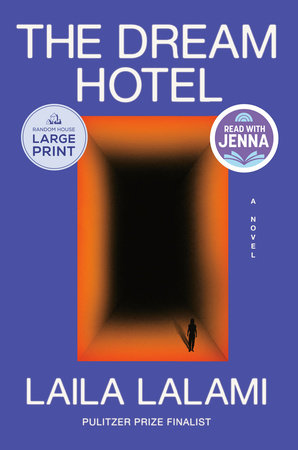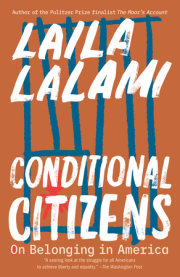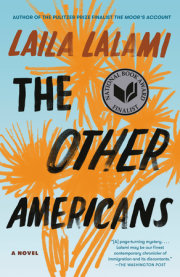1
The dream cedes to reality, or perhaps it’s the other way around, and she pulls herself from the tangle of sheets and stumbles out into the hallway. There she waits, barefoot on the cold floor, until the bell stops ringing. She stands still, limbs straight, eyes fixed on a point in the middle distance; if Madison has taught her anything, it is that compliance begins in the body. The trick is to hide any flicker of personality or hint of difference. From white domes on the ceiling, the cameras watch.
The others line up alongside her, rubbing sleep from their eyes, squinting under the chrome-plated lights. The fixtures date back to 1939, when Madison was a public elementary school, enrolling as many as four hundred children every fall. Back then, the town of Ellis had a farming-tool factory, a movie theater, a thriving pool hall, two modest hotels, and natural hot springs that attracted tourists from ninety miles away in Los Angeles. A century later, the factory had shuttered, and the springs were dry. The school sat empty, its walls spotting with mold, until the city council sold it to Safe-X. Because of legal constraints on renovation, Madison’s new owners had to keep the original lighting and metalwork, but they threw away the blackboards, stripped the state maps and alphabet posters from the walls, auctioned off the furniture, and converted the second floor into a ward.
When they brought her to her cot in 208, the smell of industrial floor cleaner made her ill. She wrestled with the window, her knuckles turning white before she noticed that it had been welded shut. But these days the smell of synthetic pine doesn’t bother her as much. Living with strangers in bare rooms, showering next to them in open stalls, standing behind them in line for the comm pods—all these have taught her to be alert to more intimate scents. From four feet away, she can smell the cream her roommate rubs on her skin to treat the rash she developed in the jail.
The attendants bristle when one of the women calls Madison a jail. This is a retention center, they say, it’s not a prison or a jail. You haven’t been convicted, you’re not serving time. You’re being retained only until your forensic observation is complete. How much longer, someone will always ask. Depends, the attendants say. Some retainees stay just twenty-one days; others have to stay a bit longer. The attendants never call the women prisoners. They say retainees, residents, enrollees, and sometimes program participants.
Hinton comes through the gate seven minutes after six. There must’ve been some traffic on the highway, or a delay during the security briefing. This morning his hair looks freshly cut, bringing out his high cheekbones and bright, hungry eyes. But his fine features are muddled by the burn scar that runs along the base of his neck, just above the stiff collar of his uniform. The scar is a frequent subject of gossip at Madison. Some people say Hinton was injured in the Tujunga complex fire, which burned his house to the ground and killed his dog, supposedly a German shepherd. Others point out that the scar looks old, so it must be the mark of a youthful accident, a mishap with a firecracker, say, or a brawl around a campfire. Who knows? But the scar gives him substance, rescues his looks from bland perfection.
Unhurriedly, he makes his way down the hall. At 202 he berates two retainees for a towel lying in a heap on the floor. That it must have slipped from its hook on the wall doesn’t matter; they’re responsible for keeping their quarters tidy. There’s another issue in 205, something about an overflowing wastebasket. But it’s only at 207 that his vigilance pays off. He finds, under a blanket, a battery-powered night-light, smaller than a fingernail. Staying awake past ten is against the rules, everyone knows that. “You people amaze me,” he says, whistling in mock admiration. From his breast pocket, he pulls out his Tekmerion and touches the screen to file a report. “It’s like you’re not even trying to lower your scores.”
Two more steps and he’ll be at 208. She can already smell the instant ramen on him, made with hot water from the tap and slurped at his desk before the start of his shift. Does he know he’s the object of so much speculation? Does he care? Perhaps he gossips about the women, too, when he eats lunch with the other attendants or when they’re bantering in the locker room after a long shift. One thing is certain: Hinton takes pride in his work, always handling device check in the morning rather than delegating it to a junior attendant. He never rushes through it, even when all the women are standing in the hallway, shivering from the cold.
No matter how long he takes to get to her, she doesn’t lower her head to make it easier for him to reach behind her ear. It’s a small thing, but it’s what she can do to signal her resistance. He points the scanner at the back of her skull, and the scanner gives a beep, indicating that the neuroprosthetic on Retainee M-7493002 [username: Sara T. Hussein] hasn’t been tampered with overnight.
She’s about to turn around when he asks, “What’s the matter?” His eyes are direct, unblinking. “You look a little off today.”
How can he tell? But keeping her mouth shut is another thing Madison has taught Sara. A response, no matter how anodyne, might be used against her. She waits, hoping her face is blank enough, until he moves on to her roommate.
Now the day can begin.
It is a frigid morning in October, the morning of her thirty-eighth birthday.
Facing the small mirror above the sink, Sara pins her hair in a tight bun. Emily has her shoes on already; she’s assigned to kitchen duty and has to be there early, before the breakfast bell. The women who’ve been at Madison awhile have learned the value of a routine, but newer retainees usually go right back to bed after device check. They’re still in denial about their situation, still going over every detail of what happened to them, hoping to pick out the moment that tipped the algorithm’s calculations against them. They face the wall or stare at the ceiling, undisturbed by the sound of footsteps down the hallway or the roar of the leaf blower outside. In the evening, they come out of their rooms long enough to eat a meal, then resume their silent meditation. It takes a while to adjust to Madison—not just the facility, but the idea behind it, too.
The first adjustment is to time itself. Each day resembles the one that came before it, the monotony adding to the women’s apprehension and leading them to make decisions that damage their cases. Some of them might refuse to submit to mental-status evaluations or provide urine samples on demand; others might get into heated arguments with the attendants. Yet the rare days that break with tedium are difficult in their own way: a phone call from a loved one or a visit from a lawyer can bring consolation just as often as heartbreak. So the monotony and the excitement weigh in different fashion on retainees. Sara marks time not by days or hours, but by milestones.
Like first steps.
Playing Peekaboo.
The word “Mama.”
And now, her birthday.
She washes up, then takes a look around the room, making sure everything is put away according to regulation. On her shelf, encased in a plastic frame purchased at the commissary, is a photograph of her children in their high chairs. Mona smiles for the camera while Mohsin looks at the banana slices on his plate, his fingers poised over a piece. The picture is already outdated, but she likes the twins’ expressions too much to exchange it for a newer photo. Next to the frame are a pile of letters, a book of stories by Jorge Luis Borges she borrowed from the library, and her notebook.
Sara resisted the lure of the notebook for as long as she could. Writing about her life at Madison seemed to her a form of capitulation—tacit acceptance that her retention was not a misunderstanding, which would be swiftly corrected when the appropriate evidence was produced, but the result of reasonable suspicions that the RAA might have about her. Naturally, she also worried that whatever she wrote could be held against her by agents who cared only about the data, not about the truth. Day after day she lay on her cot, ruminating about how she had ended up at Madison and how she could prove herself innocent of the violence they thought she was planning.
But there came a moment when she grew tired of staring at empty walls and her old habits prevailed. By training, she is a historian of post-colonial Africa, specializing in independence movements and border formation, but except for a few years when she taught at Cal State she hasn’t worked as a historian. She’s spent most of her career in digital archiving, work that doesn’t require her to prepare lectures, allows her to write on subjects she finds interesting, and provides health insurance. Or did, anyway.
While she waits for the breakfast bell, she writes her dreams in as much detail as she can remember. In last night’s dream, she’s scrolling through her Printastic feed one day at breakfast when she comes across a 1954 photograph of Moroccan independence fighters misidentified as conscripts in the French army. It’s an embarrassing mistake, which even a first-year student of African history wouldn’t make, and soon she discovers, with abject horror, that it was posted from her account. Already there are dozens of comments, mocking or shaming her for the blunder. But no matter how many times she taps the Delete button, the picture stays on her feed and her device pings with new notifications—the high-pitched sound of her disgrace. The only way to delete the image is to remove it from the mainframe that sits in a bunker underneath her building. Stairs appear in front of her and she takes them two by two, her hand barely grazing the banister as she hurries to the basement. Then the stairs melt into quicksand and her feet sink.
Another dream about humiliation. Writing it down makes her realize that what stings most isn’t the moment of public shame, but the silence of the people she thought would come to her defense. The feeling that she has been tainted and must be cast out is painful, reminding her of her first days at Madison, when she expected to hear that her friend Myra, with whom she used to hike in Will Rogers State Park most weekends, had come to her defense. All the way up to Inspiration Point, Myra would talk about how disgusted she was with the men she was dating and her plans to move to France as soon as she qualified for one of their reproductive-age visas. At the viewpoint, though, the sun-glazed Pacific would lull her into a dreamy silence. Then all the way down, she’d talk about why she could never leave the people she loved behind, people like Sara. It was a comfort to Sara each time, hearing that Myra treasured their friendship. As it happened, only her family has been in touch with her since she’s been at Madison; everyone else is afraid that associating with her might damage their risk scores.
Now she goes to the window. If she cranes her neck a certain way, and puts her hands around her eyes to block the ceiling light, she can see a stretch of road bordered by creosote and, beyond it, a mountain. It’s not much of a mountain, it’s probably more of a hill, but it’s covered with creosote and brittlebush that shiver at the slightest breeze. This morning the sky is cloudy. A flock of blackbirds gathers in formation, then breaks off again before disappearing from sight. Like Hinton, the old woman is a little late today. She lumbers to the bus stop weighed down by straw baskets, hats, and mats, her long, beaded earrings swinging with each step. An artist is how Sara thinks of the old woman, emerging out of her workshop three days a week to sell her original pieces at the farmer’s markets in nearby towns.
Then the bus arrives, its brakes screeching as it comes to a halt. The old woman gets on, scans her face, and places her things on the luggage rack. The driver waits, watching in his rearview mirror as she takes a seat in the priority area, facing Madison. Can she see Sara from that distance? It’s impossible to tell. But Sara likes to think of the old woman as a friend, a kind friend who checks in on her a few times a week.
She watches until the bus is out of sight and the scene resumes its tranquility. A solitary moment is rare at Madison and she tries to make this one last as long as she can, but she gives it up when the breakfast bell rings.
Coming down the stairs, she turns a corner lit by the cyclopic eye of a porthole window. The architects who designed Madison wanted it to be an avatar of the modern world: they gave it a flat roof, steel-pipe balustrades, and curved forms that evoked ocean liners cleaving the Atlantic at record-breaking speed. The walls would be sleek and white, the window frames an ocean blue. The Great Depression, the Dust Bowl, the Hoovervilles scattered across a sterile landscape—all these were in the past. The future belonged to science and progress.
On her way to the cafeteria, she passes the WPA mural at the entrance to the auditorium. The painting is the only piece of art in the entire facility, and for that reason it’s not unusual to find a retainee or two standing at a distance to admire it. It was painted by Victor Arnautoff, and depicts a farm scene from the 1930s: hatted laborers kneel between furrows, picking lettuce, while in the background an overseer in blue dungarees leans against a rusty white truck. The colors are remarkably well preserved; the paint isn’t exposed to direct light. Standing under the mural for even a moment feels to Sara like stepping back a hundred years in time. It’s always a little startling to move from the artwork to the next hallway, one wall of which is lined end to end with bright computer screens that display the work assignments.
The cafeteria is busiest on Tuesdays and Thursdays, when eggs and potatoes are served for breakfast. Today is a Monday; the line is short. Sara waits for the facial recognition system to identify her, then picks up a tray. The oatmeal, or what passes for oatmeal, bubbles in a huge pot embossed with the logo of MealSecure. Emily ladles the grayish liquid onto Sara’s tray, finishing off the serving with a decisive clank against the rim. She adds a slice of bread from a basket of barely defrosted toast and a fruit cup from the mound that sits at the other end of the counter. “Early bird special,” she tells Sara, rubbing the rash on her face with the inside of her arm. No matter what cream Emily tries from the commissary, the rash clears then returns after a few days.
Copyright © 2025 by Laila Lalami. All rights reserved. No part of this excerpt may be reproduced or reprinted without permission in writing from the publisher.












